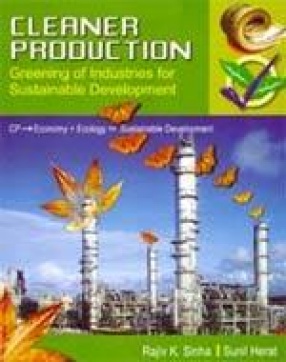Cleaner Production is now becoming part of the philosophy that ‘development and environment’, ‘industry and society’ must go hand in hand. Industries in the developed nation have discovered the economic wisdom of preventing waste and pollution at source rather than to bear the cost of ‘cleaning up’ a major oil spill or an old toxic dump site or settling a lawsuit over public health claims or paying ‘waste and pollution taxes’. Cleaner Production is born from the realization that economic goals of industries and enterprises are no longer viable through the ‘curative approach’ (en of the pipe solution of waste and pollution that incurs heavy expenditure) but by the ‘preventive approach’. Practice of CP allows the producers of industrial goods and the provides of services to produce more with less-raw material, less energy and water, less waste and , thus, less environmental impact-all contributing to sustainability. Cleaner Production also means efficient use of scarce resources (raw materials, energy and water), more and more use of cleaner and renewable sources of energy, more and more re-use of water (even treated wastewater), less and less use of toxic chemicals-in the production process, health and safety issues of the industrial workers and the consumers (society) of the products, judicious and sustainable consumption of industrial products by society, and giving better quality of life to the people.
Ethnobiology: Role of Indigenous and Ethnic Societies in Biodiversity Conservation, Human Health Protection and Sustainable Development
Ethnobiology is a new ...
$51.30
$57.00







There are no reviews yet.